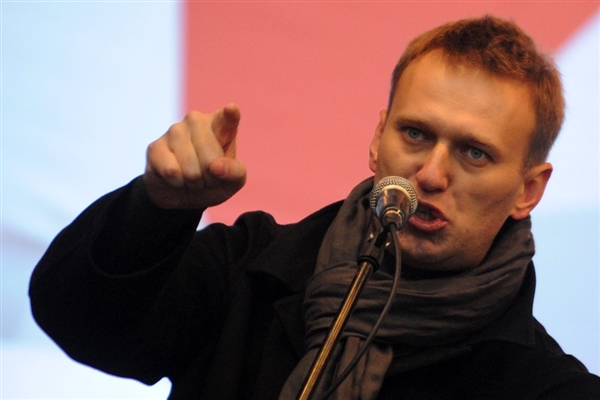Reportage
Navalny ‘no different from Putin,’ says Russian left
The boisterous entrepreneur and blogger Alexei Navalny is a darling of the mainstream media, but to the Russian left he’s not their champion.

Natasha is 25 and she is a militant of “Open Left,” a project that arose a few years ago by the initiative of former activists of various radical groups. “Navalny?” She rolls her eyes. “Maybe someone in the West should know that he is an Islamophobe and a xenophobe. And his economic platform is not so different from Putin’s.”
The Russian left is not a fan of the entrepreneur and blogger Alexei Navalny, whom the mainstream media would like to pass off as a liberal. The wound inflicted on 2012 is still open, when the bustling coalition of “leftist Stalinists,” Trotskyists and anarchists collaborated with his movement against electoral fraud. But as the repression increased, Navalny refused to show solidarity with those arrested in the name of “legality.” The demonstrations against corruption, on which Navalny is focusing the 2018 presidential campaign, are artfully constructed by spin-doctors in his entourage. Ilya Budraitskis, militant of the Russian Socialist Movement, says: “His idea of movement is vertical. Young people participating in his events are used when deemed useful tactically.”
A prime example occurred precisely on the eve of the event on Monday, when Navalny, after an agreement with the authorities, held the rally on Prospekt Sacharova, where activists from the movement against real estate speculation were also gathering. Unexpectedly, he moved the rally to Tverskaya street, causing the harsh and brutal response by the police. Kostantin Kharitonov, who runs an alternate library in the capital, says: “A last-minute move to promote the image of the spotless leader who is opposed to power. Even Putin liked it because he got to play the part of the man who keeps order before the more conservative public eye. In between there were hundreds of kids, forcibly dragged into police stations.”
The young protesters were arrested by the hundreds by the police, 900 in St. Petersburg alone. Kostantin Kharitonov adds: “Young people are the real novelty of 2017. This is a generation that grew up in Putin’s economic boom in the early 2000s and now see their way of life threatened by the crisis and the lack of social mobility produced by increasingly intrusive corruption. A generation that does not know about the Brezhnev’s stagnation or the misery of the Yeltsin years. And they are not willing to be patient, as their fathers and grandfathers often did.”
These youth are middle class, but also the “no future” kids of the immense Muscovite suburban areas who write A.C.A.B. on walls and worship “riot porn.” Anna Ivanova, a militant with the university left movement, says: “Two youth worlds that are sniffing one another in these demonstrations and could be the protagonists of a movement from the bottom up.”
But Russia is more than the large European cities. Russia is also the vast Siberia, where the redistribution of wealth based on oil revenues never occurred. In cities like Omsk and Novosibirsk, there is only Soviet infrastructure and entire production sectors ended up in pieces. The city, not surprisingly, is where the truck drivers strike is smaller and has been going on for months. Here, the events of two days ago have taken on a whole different sign. It’s not as young of course, but it involves more workers, pensioners and small business owners looking for job opportunities or to have indexed pensions.
Kharitonov is not convinced: “Our Siberian mates have confirmed this figure for months. In Vladivostok, for example, the port union has grown and scored wage gains that few people would have imagined.” It is no coincidence that in the city facing the Sea of Japan, 75 percent of eligible voters decided to abstain in the last elections for the Duma. “Navalny wants to be the electoral magnet for a discontent that is diverse and in some cases assumes class characteristics,” concludes Ivanovna. “In this space, the Russian left will stand.”
Originally published at on
